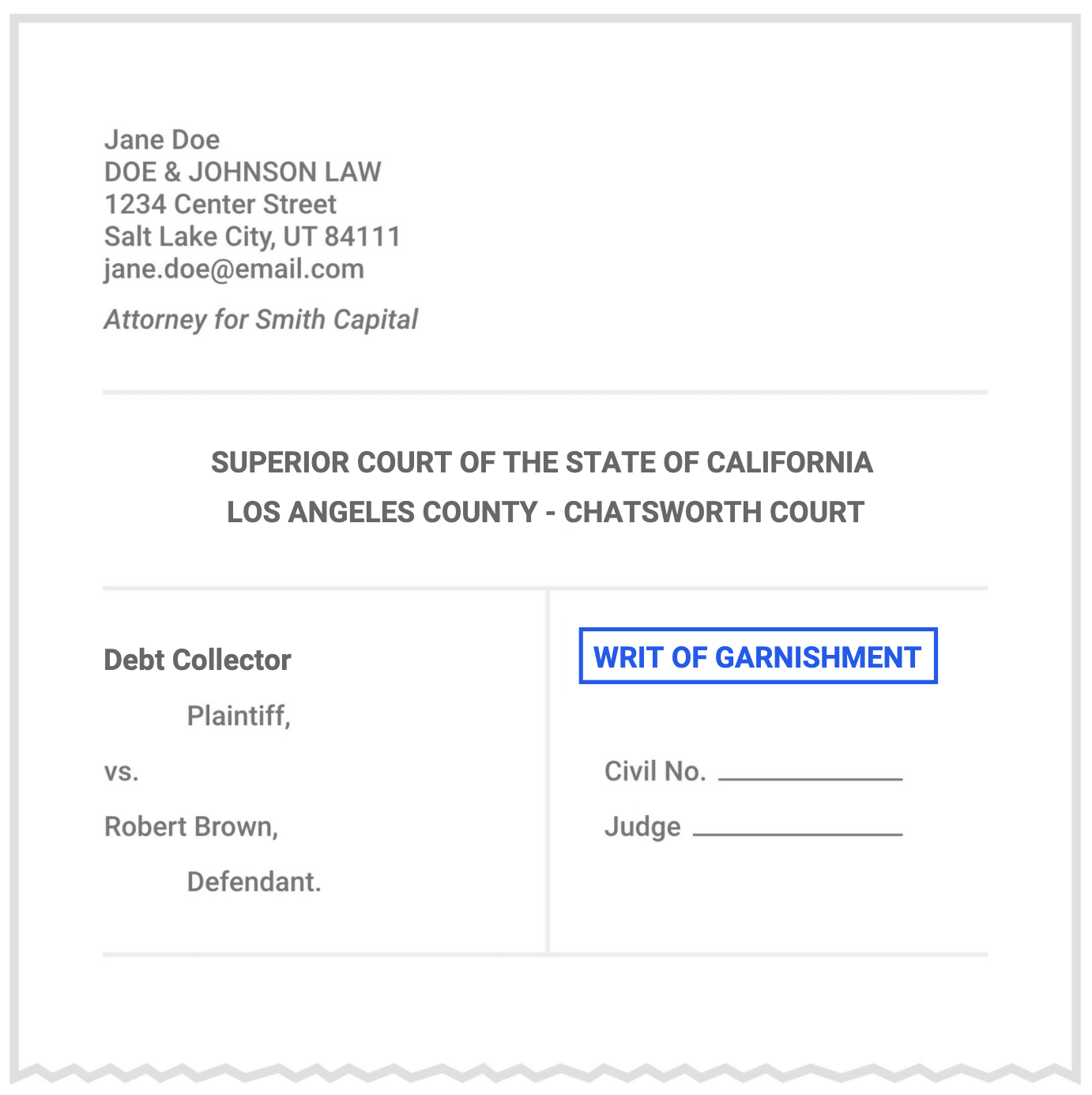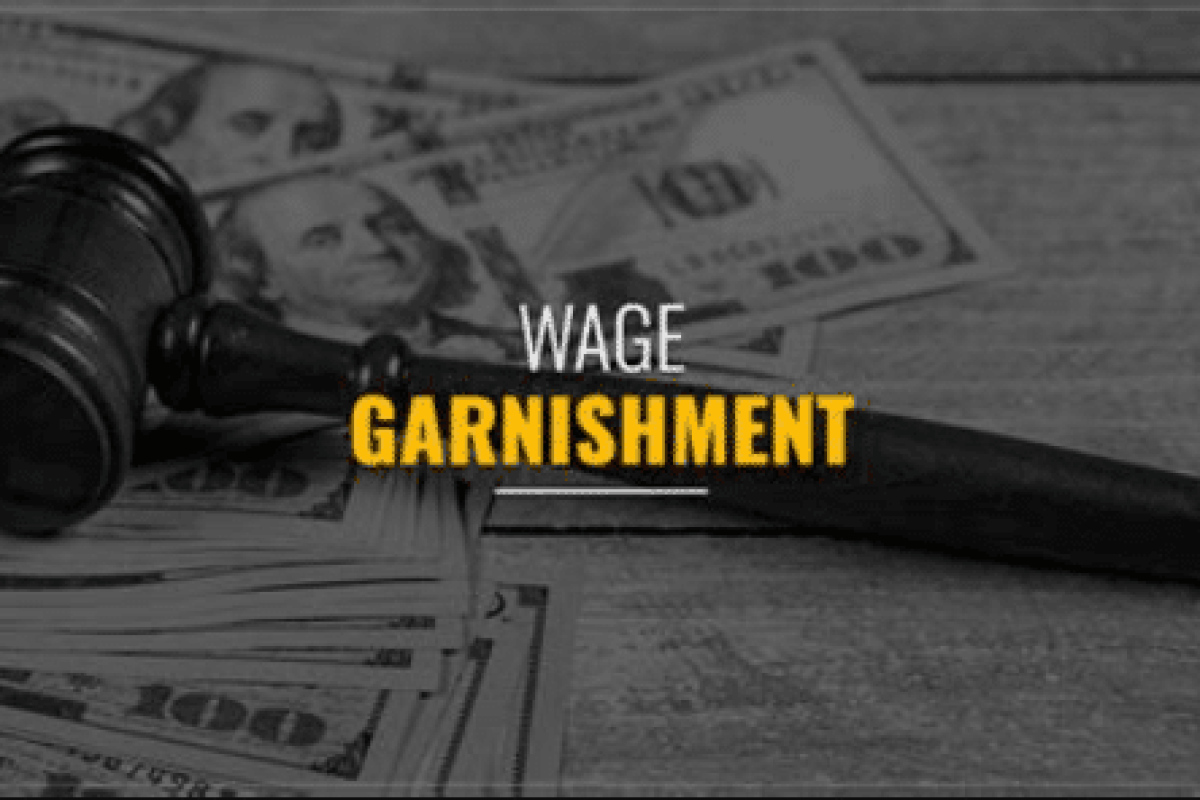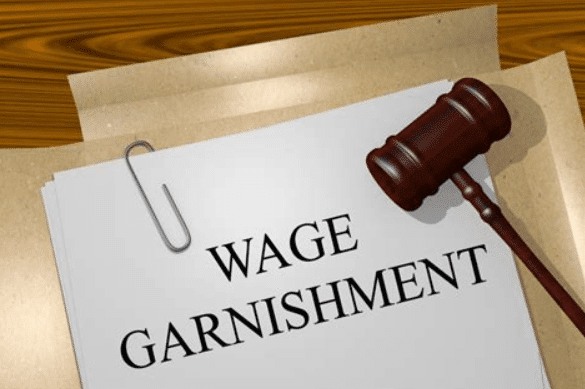Did you lose a debt lawsuit and now your wages are being garnished? Then this guide is for you. You can use ZumaZip to respond to a debt lawsuit or to get a default judgment removed and give you a second chance.
Facing the prospect of wage garnishment following an adverse judgment in a debt collection lawsuit can be daunting, but it’s important to know that bankruptcy isn’t the only solution. There are various strategies you can employ to prevent or halt wage garnishment by debt collectors. From negotiating payment plans to challenging the judgment itself, exploring your options thoroughly is crucial. Seeking legal advice and understanding your rights can help you navigate this challenging situation effectively.
Respond to the Creditor’s Final Warning Letter
When facing the prospect of wage garnishment after a debt collector obtains a judgment against you, it’s essential to pay attention to any final warning letters sent by the collector. In many states, such letters are required before wage garnishment can proceed. Responding to this communication is crucial, as debt collectors often prefer negotiating a payment plan over initiating garnishment proceedings. This provides an opportunity to engage in dialogue and potentially reach a mutually agreeable resolution before any further legal actions are taken.

Research Options Available in Your State
Many states have enacted additional legal safeguards to protect consumers and limit the circumstances under which their wages can be garnished. In California, for instance, individuals can file a “claim of exemption” to potentially reduce or eliminate wage garnishment by demonstrating economic hardship and the need for their full income to support their family.
Similarly, residents of Ohio have the option to petition the court for the appointment of a trustee. In this arrangement, individuals make payments to the trustee instead of the debt collector, who then distributes the payments to creditors. A key advantage of this option is that wage garnishment is prohibited while under a trusteeship.
Formally Object to the Wage Garnishment
Upon the initiation of the garnishment process by a debt collector, you’re likely to receive a copy of the garnishment order and notice of wage garnishment from your employer. Upon receiving these documents, it’s imperative to file a written objection with the court. Your objection should also include a request for a formal hearing to address the matter.
Objections You Can Raise to Challenge the Wage Garnishment
If you decide to object to the wage garnishment, there are a number of different objections you could potentially raise, including:
- The creditor is attempting to garnish too much money – Pursuant to federal law, a creditor may only garnish the lesser of (i) 25 percent of your disposable earnings or (ii) your disposable earnings minus 30 times the federal minimum wage.
- The creditor failed to follow proper protocols – If the creditor who is attempting to garnish your wages failed to follow the established garnishment procedure, there is a possibility that the court would be open to terminating the garnishment order. An example of an improper garnishment would be if a creditor fails to provide you timely notice of the wage garnishment.
- You already paid the creditor – This is probably one of the most frustrating situations a consumer can find themselves in. They already paid the creditor the amount listed in the judgment. Nevertheless, the creditor mistakenly proceeded with a wage garnishment. You most definitely need to object if this happens.
- Challenge the judgment that was entered against you – If you have good reason to challenge the adverse judgment entered by the court, you may be able to object to the judgment itself. For example, if you were never properly served with the complaint, you could object to the court entering a default judgment against you. Please note that you are not able to challenge the judgment at the garnishment hearing. Nevertheless, you may be able to vacate the judgment by filing a separate motion, posting a bond and attending a separate hearing to argue why the judgment should be vacated.
Make Sure to Attend the Objection Hearing
If you choose to object to a wage garnishment, it’s crucial to request a formal hearing before a court. Once scheduled, ensure your attendance at the hearing. Failing to appear after filing an objection could result in the court overruling your objection, allowing the wage garnishment to proceed as planned.
Need Help Stopping a Wage Garnishment? Use ZumaZip
ZumaZip helps explain and walk you through the process of halting a wage garnishment. Here is how it typically works – you access ZumaZip.com, which is a dynamic, step-by-step web-app. When you are in the app, you will be asked specific questions.
Once you answer these questions, you can either print the completed legal documents and mail the hard copies to the court or you can pay ZumaZip to file it for you and to have an experienced and knowledgeable attorney review the document. If you lost your debt collection lawsuit by default judgment because you didn’t respond, we can help you file a Motion to Set Aside to give a second chance on the case.
If you need help filing the necessary legal documents to stop a wage garnishment, consider utilizing the services available through ZumaZip.
Summary of What To Do To Stop Wage Garnishment by a Debt Collector
Here is an overview of what you need to do to stop a wage garnishment:
- Respond the the debt collector’s demand letter
- Research the protections available in your state
- Consider filing an objection to the wage garnishment proceeding. Remember you have different arguments you could raise for challenging the wage garnishment, like the creditor is attempting to collect too much money or they failed to follow proper protocols.
What is ZumaZip?
ZumaZip is a convenient solution designed to streamline your response to a debt collection lawsuit. Here’s a breakdown of what you can expect when you use ZumaZip:
Firstly, you’ll access our user-friendly web application, which guides you through the process step by step. You’ll be prompted to answer a series of questions related to your specific situation. Once you’ve completed the questionnaire, you have the option to either print out the finalized forms and mail them to the appropriate courts yourself, or you can opt to utilize ZumaZip’s services to file them on your behalf. Additionally, if you choose this option, an attorney will review your document for added peace of mind.
If you’re seeking guidance on how to effectively respond to a debt collection lawsuit, ZumaZip can provide the assistance you need. Feel free to explore our FAQs for more information on what ZumaZip has to offer.
What if I haven’t been sued yet?
If you’ve only received a collections notice, but not a lawsuit, the best way to respond is with a Debt Validation Letter. When a debt collector contacts you in any way, whether it’s by phone or mail, you can respond by formally requesting a debt validation with a Debt Validation Letter . This letter notifies the collector that you dispute the debt and forces them to provide proof you owe the debt. They can’t call you or continue collecting until they provide validation of the debt. This flowchart shows how you can use a Debt Validation Letter to win.
Get started with a Debt Validation Letter here.
How to Answer a Summons for debt collection in all 50 states
Here’s a list of guides on how to respond to a debt collection lawsuit in each state:
- Alabama
- Alaska
- Arizona
- Arkansas
- California
- Colorado
- Connecticut
- Delaware
- Florida
- Georgia
- Hawaii
- Idaho
- Illinois
- Indiana
- Iowa
- Kansas
- Kentucky
- Louisiana
- Maine
- Maryland
- Massachusetts
- Michigan
- Minnesota
- Mississippi
- Missouri
- Montana
- Nebraska
- Nevada
- New Hampshire
- New Jersey
- New Mexico
- New York
- North Carolina
- North Dakota
- Ohio
- Oklahoma
- Oregon
- Pennsylvania
- Rhode Island
- South Carolina
- South Dakota
- Tennessee
- Texas
- Utah
- Vermont; Vermont (Small Claims court)
- Virginia
- Washington
- West Virginia
- Wisconsin
- Wyoming
Guides on how to beat every debt collector
Hey there! Facing off against a debt collector can feel like a daunting challenge, but fear not! We’re here to help you navigate through it all with our handy guides designed to assist you in beating every debt collector you encounter. Whether you’re facing a new lawsuit or dealing with a persistent collector, we’ve got your back. Stay positive, stay informed, and let’s tackle this together!
- Absolute Resolutions Investments LLC
- Accredited Collection Services
- Alliance One
- Amcol Clmbia
- American Recovery Service
- Asset Acceptance LLC
- Asset Recovery Solutions
- Associated Credit Services
- Autovest LLC
- Cach LLC
- Cavalry SPV I LLC
- Cerastes LLC
- Colinfobur
- Covington Credit
- Crown Asset Management
- CTC Debt Collector
- Cypress Financial Recoveries
- Delanor Kemper & Associates
- Eagle Loan of Ohio
- Educap
- Estate Information Services
- FIA Card Services
- Forster & Garbus
- Freshview Solutions
- Fulton Friedman & Gullace LLP
- Harvest Credit Management
- Howard Lee Schiff
- Hudson & Keyse LLC
- Integras Capital Recovery LLC
- Javitch Block
- Jefferson Capital Systems LLC
- LVNV Funding
- Mannbracken
- Mariner Finance
- Medicredit
- Michael J Adams PC
- Michael J Scott
- Midland Funding LLC
- Mullooly, Jeffrey, Rooney & Flynn
- Mountain Land Collections
- MRS Associates
- National Collegiate Trust
- Nationstar Foreclosure
- Northstar Capital Acquisition
- NCEP LLC
- NRC Collection Agency
- OneMain Financial
- Palisades Collection LLC
- Pallida LLC
- Paragon Revenue Group
- Pinnacle Collections Agency
- PMAB LLC
- Portfolio Recovery Associates
- Provest Law
- PYOD LLC
- Reunion Student Loan Finance Corporation
- Revenue Group
- Regents and Associates
- RSIEH
- Salander Enterprises LLC
- Second Round Sub LLC
- Security Credit Services
- Sherman Financial Group
- Suttell and Hammer
- T-Mobile
- Transworld Systems
- Tulsa Teachers Credit Union
- UCB Collection
- Velo Law Office
- Velocity Investments
- Waypoint Resource Group
- Weinberg and Associates
- Wolpoff & Abramson
Settle your medical debt
Having a health challenge is stressful, but dealing medical debt on top of it is overwhelming. Here are some resources on how to manage medical debt.
- Am I Responsible for My Spouse’s Medical Debt?
- Do I Need a Lawyer for Medical Bills?
- Do I Need a Lawyer to Fight Medical Bill Debt?
- Does Bankruptcy Clear Medical Debt?
- How Much Do Collection Agencies Pay for Medical Debt?
- How to Find Medical Debt Forgiveness Programs
- Is There a Statute of Limitations on Medical Bills?
- Medical Debt Statute of Limitations by State
- Summoned to Court for Medical Bills — What Do I Do?
- Summoned to Court for Medical Bills? What to Do Next
Stop calls from Debt Collectors
Do you keep getting calls from an unknown number, only to realize that it’s a debt collector on the other line? If you’ve been called by any of the following numbers, chances are you have collectors coming after you, and we’ll tell you how to stop them.
- 800-390-7584
- 800-289-8004
- 800-955-6600
- 877-366-0169
- 877-591-0747
- 800-278-2420
- 800-604-0064
- 800-846-6406
- 877-317-0948
- 888-899-4332
- 888-912-7925
- 202-367-9070
- 502-267-7522
Other wage garnishment resources
- Bank Account Garnishment and Liens in Texas
- Can I Stop Wage Garnishment?
- Can My Wife’s Bank Account Be Garnished for My Debt?
- Can Payday Loans Garnish Your Wages?
- Can pensions be garnished?
- Can Private Disability Payments Be Garnished?
- Can Social Security Disability Be Garnished?
- Can They Garnish Your Wages for Credit Card Debt?
- Can You Stop a Garnishment Once It Starts?
- Guide to Garnishment Limits by State
- How Can I Stop Wage Garnishments Immediately?
- How Long Before a Creditor Can Garnish Wages?
- How Long Does It Take to Get Garnished Wages Back?
- How to Fight a Wage Garnishment
- How to Prevent Wage Garnishment
- How to Stop a Garnishment
- How to Stop Social Security Wage Garnishment
- How to Stop Wage Garnishment — Everything You Need to Know
- New York Garnishment Laws – Overview
- Ohio Garnishment Laws — What They Say
- Wage Garnishment Lawyer
- What Is Wage Garnishment?



































